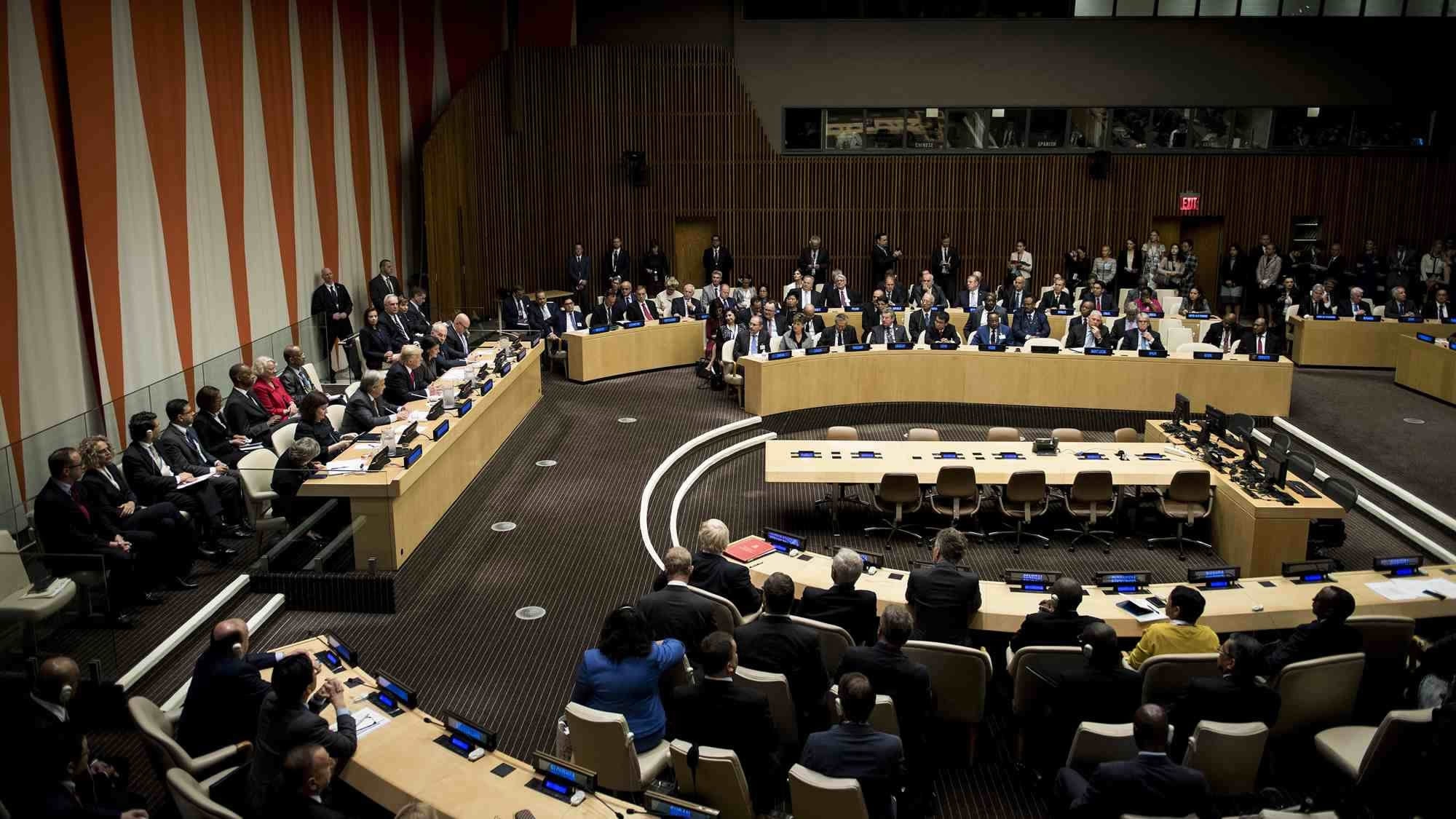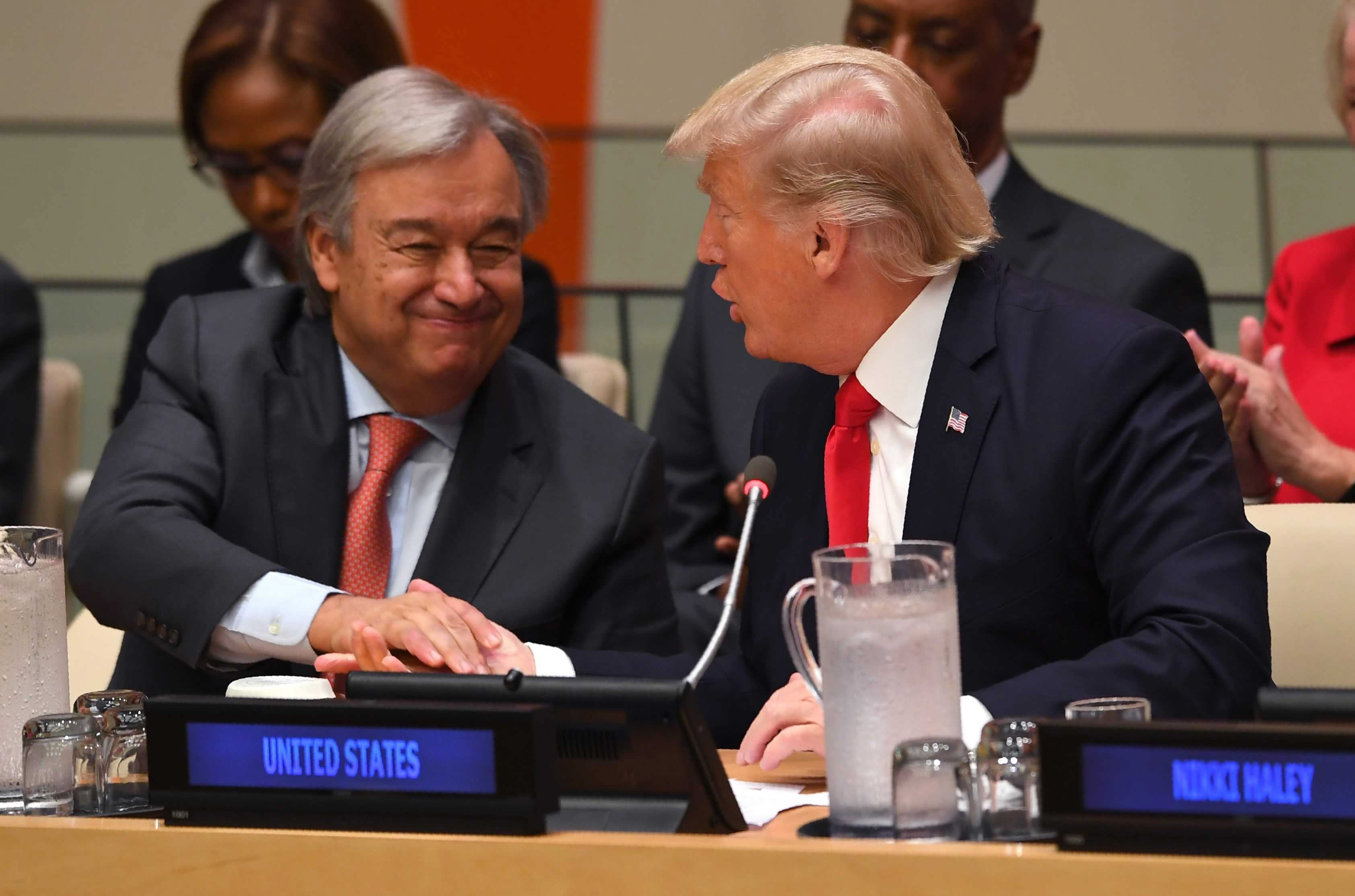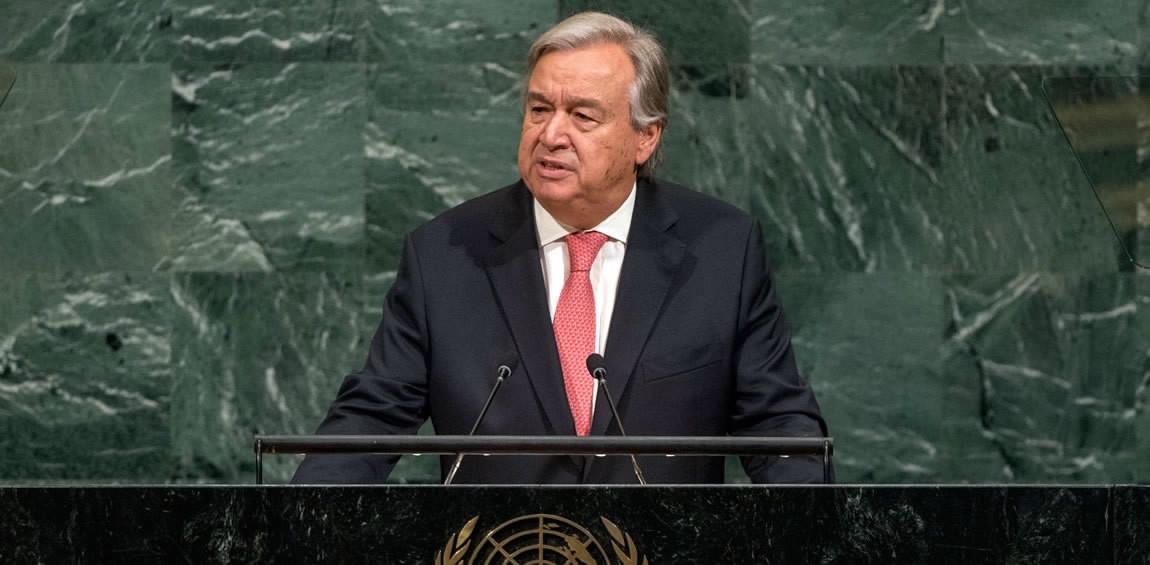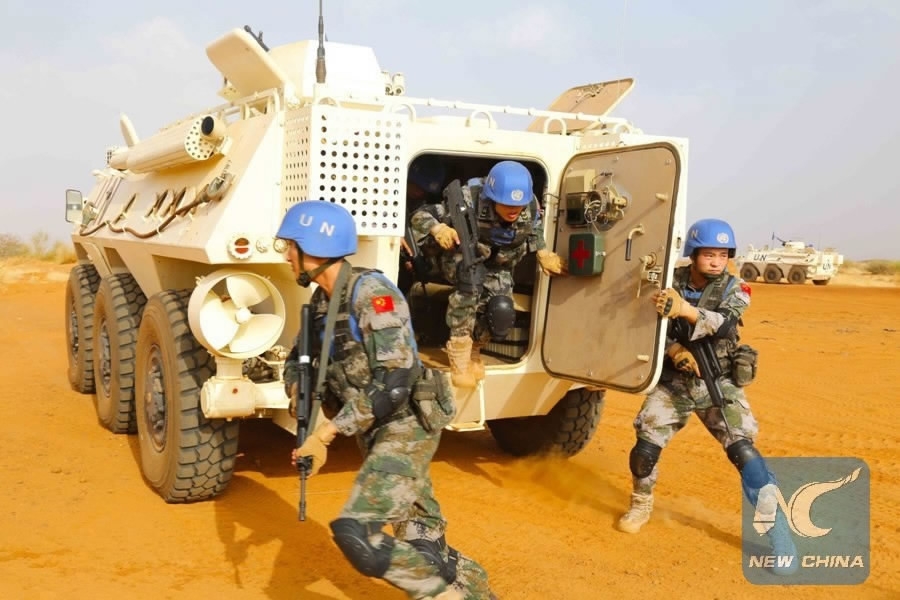
Opinions
15:32, 24-Sep-2017
Opinion: Redistribution of power key to UN reform
By Zhang Guihong from Global Times

Reform of the United Nations is not a new subject. Three former UN secretaries-general – Boutros Boutros-Ghali, Kofi Annan and Ban Ki-moon – all pushed for reform of the world body but did not meet expectations of the international community.
The 72nd Session of the UN General Assembly opened on September 12. In addition to the General Assembly, the high-level meeting and general debate are considered the climax of the UN session. This year's meeting drew particular attention as it is the first Assembly since António Guterres assumed position as secretary-general and Donald Trump entered the White House.

UN Secretary-General Antonio Guterres (L) and US President Donald Trump shake hands during a meeting on United Nations Reform at the United Nations headquarters in New York, September 18, 2017. /AFP Photo
UN Secretary-General Antonio Guterres (L) and US President Donald Trump shake hands during a meeting on United Nations Reform at the United Nations headquarters in New York, September 18, 2017. /AFP Photo
Trump's first show at the UN involved presiding over a UN reform conference and delivering a speech which proposed 10 steps to reform the world body. Guterres submitted reform proposals to member states for restructuring the secretariat.
At the end of last month, China's foreign ministry released China's position paper at the 72nd UN General Assembly and again emphasized the stance of Beijing to support all-round reform of the UN and increase the say of developing countries in international affairs.
Reform of the UN means the readjustment and redistribution of interests and powers. Different member states and camps have their own demands.
The US wants to reduce its commitment to the UN and improve its management. Britain and France, as representatives of the developed world, hope to maintain their dominant positions in the UN; emerging developed countries like Germany and Japan and developing nations like India and Brazil want to enter the Security Council to share power.
More small- and medium-sized countries hope the UN will alleviate poverty and improve livelihoods and limit the privileges of big powers at the UN.

UN Secretary-General António Guterres presents his annual report on the work of the organization ahead of the opening of the UN General Assembly’s 72nd general debate. /UN Photo
UN Secretary-General António Guterres presents his annual report on the work of the organization ahead of the opening of the UN General Assembly’s 72nd general debate. /UN Photo
It's obviously impossible for UN reform to balance these interests and meet all kinds of demands at the same time. The reform should be based on improving the ability of the UN to solve global problems and challenges and to lead the sustainable and peaceful development of the world. Member states should cooperate and support attempts at peace and human rights causes based on the consensus of helping the UN play its main role in international affairs.
At the same time, some drawbacks exist in the institutional setting and functional operating system of the UN which make it difficult for it to effectively deal with the new threats and challenges posed by the international community. Thus, reform should be accelerated to enhance the abilities of various countries to coordinate and cope with international challenges.
Regrettably, since the beginning of the new century, the US has gradually retreated from multilateralism. Under the doctrine of "America first," the Trump administration plans to slash UN peacekeeping funding and aid to international organizations. This is in fact a short-sighted and pragmatic policy that lacks strategic vision.
As the main founder of the UN, the US enjoys special status and has particular influence in the UN. The national interests and diplomatic goals the US has achieved using the UN is immeasurable. The UN and lots of its institutions are set in the US, which is an important symbol and by-product of the US as a superpower, bringing Washington infinite soft power and invisible advantages.
That America's share of UN peacekeeping dues is the highest due to historical reason. The financial contribution of the US to the UN is the largest, but we should see that the US enjoys many privileges – the Americans take several leadership and senior positions. Trump is justified to propose reasonable cost-sharing. But it is equally important that the distribution of powers should also be fair. Just as Guterres warned, if Washington pulled back as a global leader, other states would step up.

Chinese peacekeepers of UN Mali Mission take part in an exercise against emergency in Mali, October 20, 2014. /AFP Photo
Chinese peacekeepers of UN Mali Mission take part in an exercise against emergency in Mali, October 20, 2014. /AFP Photo
In the past 20 years, China's share of UN peacekeeping dues has increased dramatically. By establishing China-UN Peace and Development Trust Fund and South-South cooperation fund and funding special agencies of the UN, China has increased its support for the UN.
But China lacks headquarters, regional centers and offices of the UN and is under-represented in staff numbers.
China has never adopted a "China first" mentality but promotes cooperation, new win-win international relations, global governance, a community of shared destiny, the Belt and Road initiative, and actively participates in peacekeeping and pushes for the implementation of sustained development agenda.
China will always support the work of the UN and strengthen its relationship with the world body.
China will improve efficiency and effectiveness through the integration of functions and a clear distribution of labor. China will be committed to preventive diplomacy to help avoid escalation of conflicts and to achieve sustainable peace. It will also promote the balanced and inclusive development of the economy, society and environment.
In this way, China will provide better service to UN member states and people in the world. A people-oriented way is the very way for UN reform.
(This piece was originally published on Global Times. The author is professor and executive director of the Center for UN Studies at Fudan University. The article reflects the author's opinion, and not necessarily the views of CGTN.)
Source(s): Global Times

SITEMAP
Copyright © 2018 CGTN. Beijing ICP prepared NO.16065310-3
Copyright © 2018 CGTN. Beijing ICP prepared NO.16065310-3